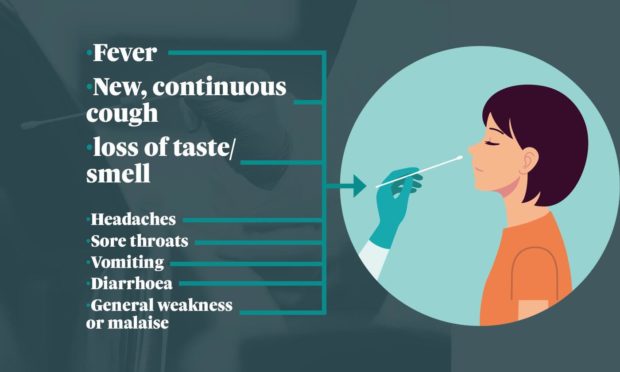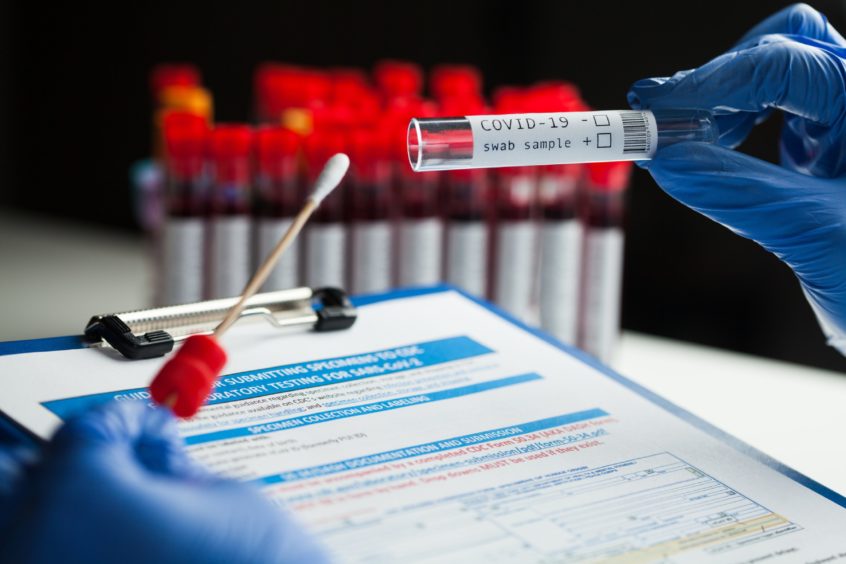Public health bosses have issued a plea for hundreds of thousands of north east residents to take a Covid test – even if they don’t have any of the “Big Three” symptoms.
NHS Grampian experts say they are “reacting dynamically” to higher case rates in Aberdeen and north Aberdeenshire.
Standard advice is to get a test if you have any of the three standard symptoms – a fever, a new continuous cough or loss of taste or smell.
But now, public health experts are encouraging anyone with a headache, sore throat, vomiting, diarrhoea, and “general weakness or malaise” to have a PCR test.
The same guidance was issued earlier in the year for Moray, and has been issued for other parts of NHS Grampian previously.
The most recent figures have Aberdeen’s seven-day case rate at 570 per 100,000. Aberdeenshire as a whole has a seven-day rate of 628 per 100,000.
The NHS say case rates and things like waste water testing are taken into account.
It is understood the tests and rates combined has triggered the change in guidance.
Daily update of Covid cases: September 10
‘General weakness or malaise’
An NHS Grampian spokeswoman said: “Where we see particularly high rates of cases – often backed up by the results of waste-water testing – we will encourage people to seek a PCR test for an extended list of symptoms.
“This includes the standard trio of fever, new continuous cough, and loss of taste or smell, along with headaches, sore throats, vomiting, diarrhoea, and general weakness or malaise.
“This was the case during the significant rise in cases we saw in Moray earlier this year and is currently the case across Aberdeen City and parts of Aberdeenshire.
“We continue to advise anyone displaying any of the classic Covid-19 symptoms to self-isolate and book a PCR test immediately.”
Schools pass on guidance
The guidance applies to all ages, but at least one school in the affected areas has sent it out.
Kintore Primary School’s letter to parents added “chills, runny nose and muscle pain” to the NHS Grampian list.
But it does not mention “general malaise”.
One parent, who did not wish to be named, said he was worried about the children missing even more school.
He added: “Parents know their kids, and I feel like this approach might clog up the system. It seems a very broad spectrum of symptoms.”

